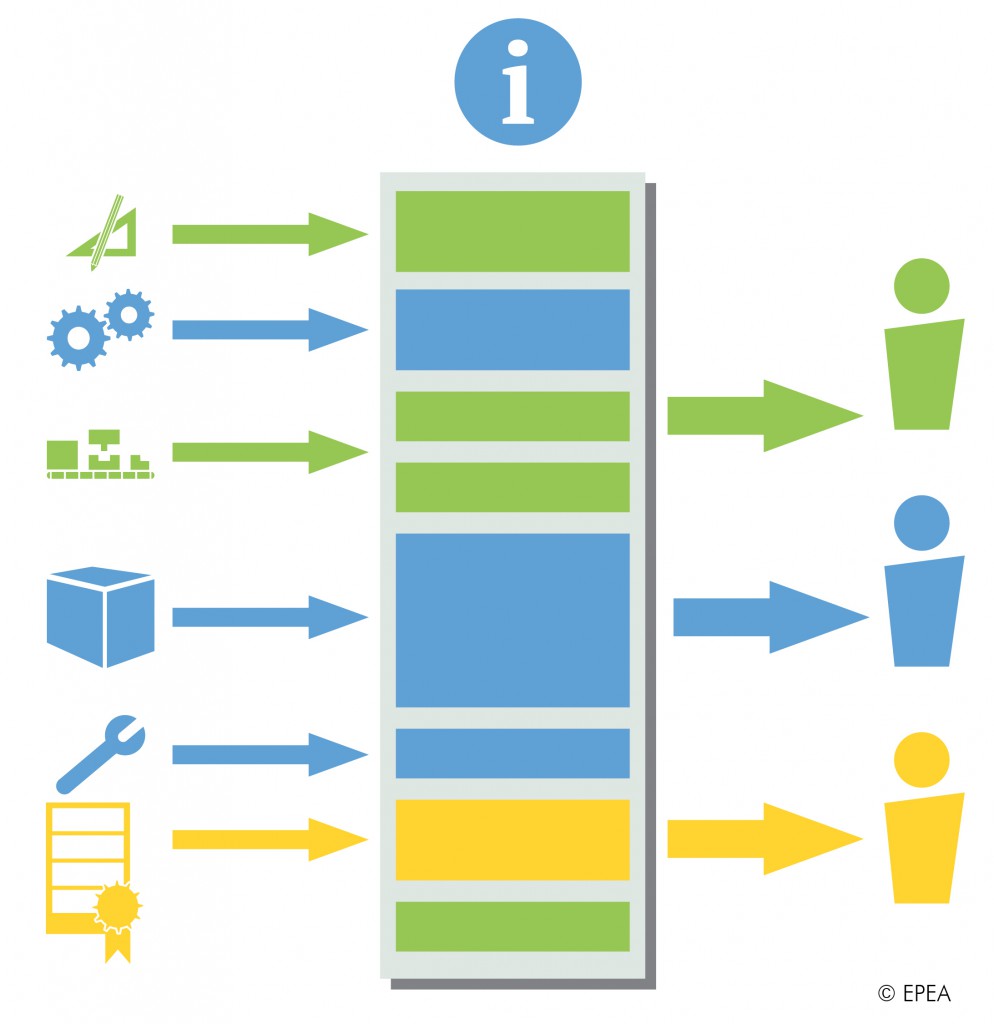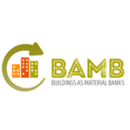Materials Passports
Contents |
[edit]  Definition
Definition
Materials passports are electronic and interoperable data sets that collect characteristics of materials and assemblies, enabling suppliers, designers and users to give them the highest possible value and guide all towards material loops.
The availability and relevance of this data, in particular of the use history and reuse potential of a component, facilitates reuse, recycling and biodegradation of that component. Moreover, it is crucial for choosing components that can be reused in the future. Accordingly, the development of materials passports is seen as a mechanism to encourage innovative product design and the implementation of circular business models.
The document "Building Blocks; a manifesto to transform the Built Environment" published by Architects Declare defines a Material passport as:
"Materials passports are electronic data sets that collect characteristics of materials and assemblies, enabling suppliers, designers and users to re-use them at their highest value in a circular supply chain. The availability and relevance of this data, in particular of the use history and reuse potential of a component, facilitates reuse, recycling and biodegradation of that component."
[edit] Guidelines
Materials passports, as defined above, are a specific type of passport developed within the BAMB project. They distinguish themselves from for other passports by the possibility to update the collected data and by the identification of the materials’ history, current and possible future uses and the related processes within the bio- and technosphere.
Further, materials passports should not be confused with Environmental Product Declarations or EPDs reporting on the environmental impact of materials or assemblies in a harmonised way. Neither should they be confused with Recyclability Indexes describing relative volumes and weights of recycled materials in components instead of their actual content.
NB Delivering Net Zero: Key Considerations for Commercial Retrofit, published by the UK Green Building Council on 4 May 2022, defines Materials passports: places to gather and organise data about materials contained within a building. For the design team, it captures information from surveys and other information sources. For operation steams, it provides a single location to record or link maintenance information.’ Ref Orms, How can Materials Passports support material re-use of existing buildings?
[edit] References
Debacker W. and Manshoven S. (2016) Synthesis of the state-of-the-art BAMB report: key barriers and opportunities for Materials Passports and Reversible Building Design in the current system. VITO.
--BAMB - Buildings As Material Banks 09:20, 15 Aug 2018 (BST)
[edit] Related articles on Designing Buildings
- Construction materials.
- Design quality for buildings.
- Dismantling of bricks for reuse.
- Examining the 2021 construction materials shortage.
- Hire, reclaim and reuse scheme combats construction waste.
- Life cycle assessment.
- Material handling.
- Materials on site.
- Product-life extension: product-life factor.
- Off-site goods and materials.
- Recyclable construction materials.
- Reduce, reuse, recycle.
- Reuse potential.
- Reuse of building products and materials – barriers and opportunities.
- The Carbon Project: infrastructure and the circular economy.
- Steel re-use.
- Systemic view on reuse potential of building elements, components and systems.
About the wiki
You can use and contribute to the wiki in different ways.
[edit] Engaging with the wiki
You can:
- Contribute to existing articles
- Create articles
- Share articles through social media and other channels
[edit] Add your own content
To contribute to or create an article, you can follow these steps:
- Register as a user
- Read through the editorial policy and guidance on writing and contributing to articles
- See the detailed help page on tips on writing wiki articles
- Try editing a test article
- If editing an article, select 'Edit this article' underneath the article title
- If creating a new article, select 'Create an article'. In the 'Select categories' area, expand the 'Industry context' list and tag 'Circular economy' to add your article to this wiki
[edit] Who is this wiki for?
The articles contain information on implementing circular economy approaches in construction that could be relevant to:
- Architects
- Construction contractors
- Designers
- Developers, owners, investors
- Engineers
- Landowners
- Manufacturers and supplier
- Universities and research
- Urban planners








Comments
There is much more information that could be added to this article but it appears to be locked for editing, please can it be unlocked to we can add more recent information.
Please start a new article with a different headline. Thank you.
--Editor, Designing Buildings